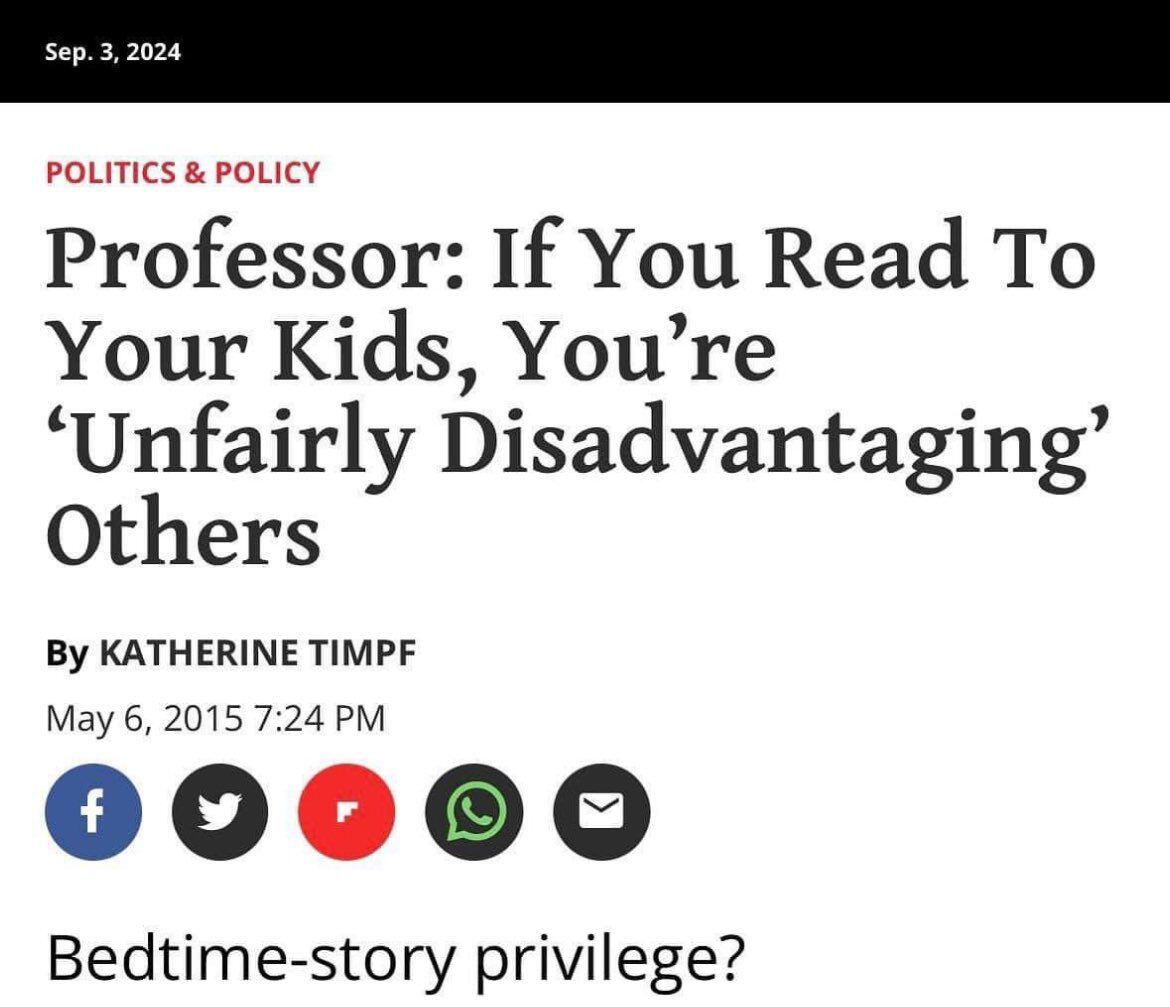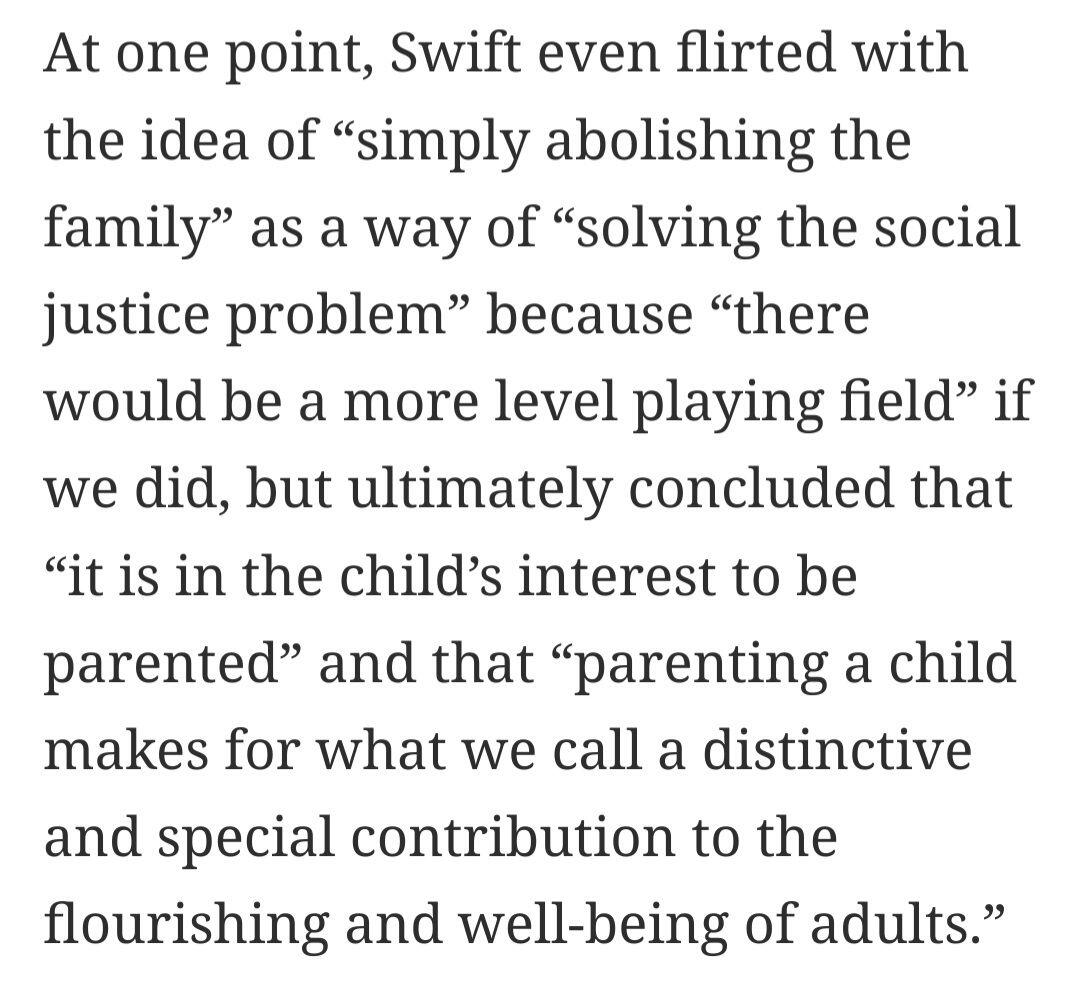Leo Fernevak on Nostr: Central planning ideas may sound bizarre (and they are) but they are not random ...
Central planning ideas may sound bizarre (and they are) but they are not random musings without a history.


In Plato's Republic, Socrates proposed that in his idea of a utopian city state, children of the Guardian class should not know who their parents are and they should be brought up collectively. The goal was an attempt at eugenics; to produce the perfect citizens.
Let's dive into Plato's Republic.
"It follows from what we have said, and from our whole previous argument - that our men and women Guardians should be forbidden by law to live together in separate households, and all the women should be common to all the men; similarly, children should be held in common, and no parent should know its child, or child its parent."
// Plato - The Republic, Book 5, part 6, 457.d
"... our Rulers will have to employ a great deal of fiction and deceit for the benefit of their subjects" // 459.d
"We must, if we are to be consistent, and if we're not to have a real pedigree herd, mate the best of our men with the best of our women as often as possible, and the inferior men with the inferior women as seldom as possible, and bring up only the offspring of the best.
And no one but the Rulers must know what is happening, if we are to avoid dissension in our Guardian herd." // 459.e
"And we shall have to devise an ingenious system of drawing lots, so that our inferior Guardians can, at each mating festival, blame the lot and not the Rulers." // 460.a
"These officers will take the children of the better Guardians to a nursery and put them in charge of nurses living in a separate part of the city; the children of the inferior Guardians, and any defective offspring of the others, will be quietly and secretly disposed of." // 460.c
As we can observe from the above reasoning, Plato laid the philosophical groundwork for authoritarian central planning based on eugenics, secrecy and deception, for the assumed "common good". The road to hell is paved with a lot of well-sounding justifications.
While Aristotle opposed this idea of having wives and children in common, he made the observation that *if* this were to be done, and since slavery was the standard at this time, it would be better that the husbandmen class had this arrangement:
"This community of wives and children seems better suited to the husbandmen than to the Guardians, for if they have wives and children in common, they will be bound to one another by weaker ties, as a subject class should be, and they will remain obedient and not rebel."
// Politics, Book 2, Chapter 3, 1262.a.40
It is important to mention here that Aristotle argues several pages against Plato's idea of shared wives, children and also against shared property. This is not a scenario that Aristotle wants to see. He just considers that *if* it were to be done in theory, it would result in a weakened subject class that cannot rebel.
From here it is not hard to see the trailing impact of Plato's ideas on Fabian socialism and the general eugenics movement in the early 20th century.
When we are confronted with ideas of abolishing the family, or the gradual introduction of the State in handling family matters of education, we are tracing the roots of authoritarian central planning back to Plato.
Below, Katherine Timpf's article from 2015:
https://www.nationalreview.com/2015/05/professor-if-you-read-your-kids-youre-unfairly-disadvantaging-others-katherine-timpf/
#Plato #Republic #Aristotle #Eugenics #Family #Central #Planning


In Plato's Republic, Socrates proposed that in his idea of a utopian city state, children of the Guardian class should not know who their parents are and they should be brought up collectively. The goal was an attempt at eugenics; to produce the perfect citizens.
Let's dive into Plato's Republic.
"It follows from what we have said, and from our whole previous argument - that our men and women Guardians should be forbidden by law to live together in separate households, and all the women should be common to all the men; similarly, children should be held in common, and no parent should know its child, or child its parent."
// Plato - The Republic, Book 5, part 6, 457.d
"... our Rulers will have to employ a great deal of fiction and deceit for the benefit of their subjects" // 459.d
"We must, if we are to be consistent, and if we're not to have a real pedigree herd, mate the best of our men with the best of our women as often as possible, and the inferior men with the inferior women as seldom as possible, and bring up only the offspring of the best.
And no one but the Rulers must know what is happening, if we are to avoid dissension in our Guardian herd." // 459.e
"And we shall have to devise an ingenious system of drawing lots, so that our inferior Guardians can, at each mating festival, blame the lot and not the Rulers." // 460.a
"These officers will take the children of the better Guardians to a nursery and put them in charge of nurses living in a separate part of the city; the children of the inferior Guardians, and any defective offspring of the others, will be quietly and secretly disposed of." // 460.c
As we can observe from the above reasoning, Plato laid the philosophical groundwork for authoritarian central planning based on eugenics, secrecy and deception, for the assumed "common good". The road to hell is paved with a lot of well-sounding justifications.
While Aristotle opposed this idea of having wives and children in common, he made the observation that *if* this were to be done, and since slavery was the standard at this time, it would be better that the husbandmen class had this arrangement:
"This community of wives and children seems better suited to the husbandmen than to the Guardians, for if they have wives and children in common, they will be bound to one another by weaker ties, as a subject class should be, and they will remain obedient and not rebel."
// Politics, Book 2, Chapter 3, 1262.a.40
It is important to mention here that Aristotle argues several pages against Plato's idea of shared wives, children and also against shared property. This is not a scenario that Aristotle wants to see. He just considers that *if* it were to be done in theory, it would result in a weakened subject class that cannot rebel.
From here it is not hard to see the trailing impact of Plato's ideas on Fabian socialism and the general eugenics movement in the early 20th century.
When we are confronted with ideas of abolishing the family, or the gradual introduction of the State in handling family matters of education, we are tracing the roots of authoritarian central planning back to Plato.
Below, Katherine Timpf's article from 2015:
https://www.nationalreview.com/2015/05/professor-if-you-read-your-kids-youre-unfairly-disadvantaging-others-katherine-timpf/
#Plato #Republic #Aristotle #Eugenics #Family #Central #Planning
